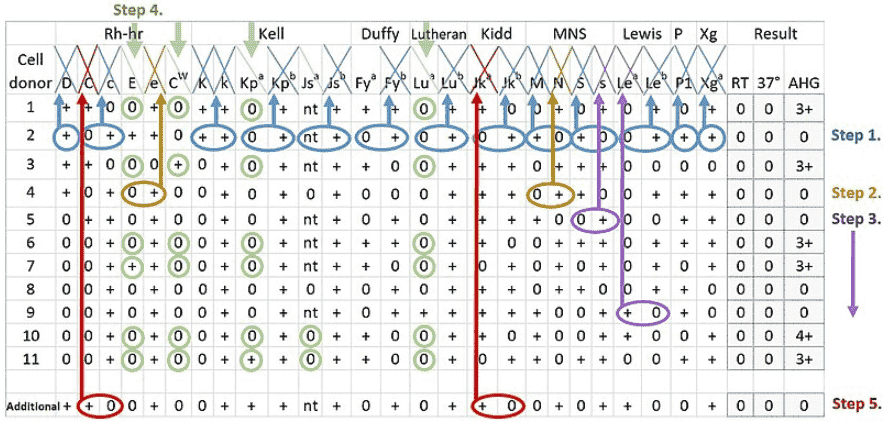NAA Services for Anti-JKᵇ
The major patients with thalassemia on regular blood transfusions can develop red cell alloantibodies. Detailed pretransfusion screening would add better management to these patients. As an undisrupted service provider in the disease diagnosis and management, Creative Biolabs has accumulated a lot of experience in providing natural autoantibody (NAA) services against various antigens in different blood group systems. Now, we are capable to provide high-quality anti-JKᵇ services for our clients all over the world.
Background of Anti-JKᵇ Antibody
The Kidd blood group system was discovered in 1951 and is composed of 2 antithetical antigens, JKᵃ and JKᵇ, along with a third high-incidence antigen, Jk3. These antigens play a key role in urea transport through the membrane of red blood cells (RBC). The JKᵃ and JKᵇ antigens are the results of a single-nucleotide polymorphism present at nucleotide 838 resulting in an aspartate or asparagine amino acid at position 280, respectively. Besides the typical acute hemolytic transfusion reactions common to all clinically relevant blood group antigens, the Kidd antigens are notorious for causing delayed hemolytic transfusion reactions due to the strong anamnestic response exhibited by antibodies directed against Kidd antigens. The anti- JKᵃ and JKᵇ antibodies are most often found along with other alloantibodies and they are mainly IgG-type in nature. Nearly 50 % of these antibodies can bind complement and cause intravascular hemolysis.
 Fig.1 Interpretation of antibody panel to detect patient antibodies towards the most relevant human blood group systems, including Kidd.1
Fig.1 Interpretation of antibody panel to detect patient antibodies towards the most relevant human blood group systems, including Kidd.1
The Role of Anti-JKᵇ Antibody in Thalassemia
β-thalassaemia is an inherited anaemia due to errors in the synthesis of β-globin chain. Lifelong transfusions are life savers for thalassaemia patients but are associated with many complications. Alloimmunization is a major problem for blood banks. Antigens of foreign RBCs induce the formation of antibodies in patients suffering from thalassaemia. Kidd antibodies have a reputation for causing hemolytic transfusion reactions and hemolytic disease of the fetus and newborn. For instance, anti-JKᵇ can efficiently bind complement and causes both intravascular and extravascular haemolysis. Studies reported that anti-JKᵇ is rarer than anti-JKᵃ and is usually found in combination with other alloantibodies or autoantibodies. Therefore, in order to better treat patients with thalassaemia, it is necessary for antibody screening cells such as anti-JKᵇ to be used to detect unexpected antibodies.
What We Can Do about NAA?
Equipped with our well-established platforms and experienced scientists, we can provide comprehensive NAA services, from NAA detection, NAA profiling, to NAA epitope mapping. A wide spectrum of NAA products is available for your choice.
Features of our Anti-JKᵇ Services Including but Not Limited to
- Higher sensitivity potential
- Shorter turnaround times
- Best after-sale service
Numerous cases emphasize the importance of additional serologic testing to detect alloantibodies in patients with broadly reactive warm autoantibodies. Along with years of rich experience in the field of antibody serologic diagnosis, Creative Biolabs has successfully finished lots of projects for our customers all over the world. We are now confident in offering the customized proposal to meet your specific needs towards anti-JKᵇ. If you are interested in our service, please do not hesitate to contact us for more details.
Reference
- From Wikipedia: By Mikael Häggström - Own work, CC0, https://commons.wikimedia.org/wiki/File:Serology_interpretation_of_antibody_panel_for_blood_group_antigens.jpg
Related Services:
- NAA Services for Anti-Alloantibody Xg
- NAA Services for Anti-K Antibody
- NAA Services for Anti-E Antibody
- NAA Services for Anti-C Antibody
- NAA Services for Anti-Alloantibody Cᵂ
- NAA Services for Anti-Alloantibody D

